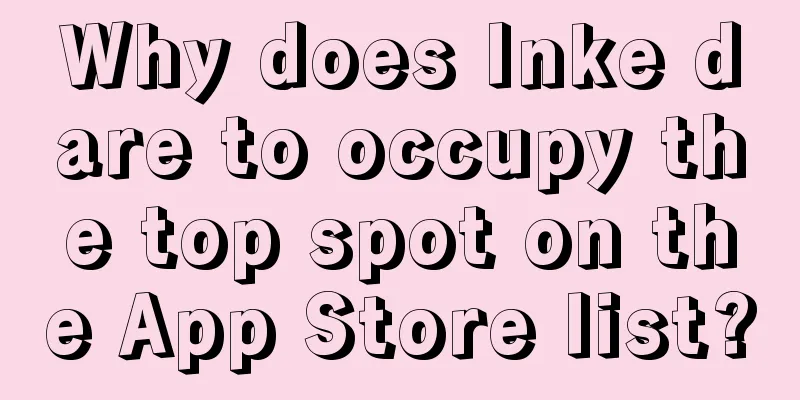Google builds Android empire, but its dominance raises concerns

|
Introduction: "If there is only one operating system dominating the market, even if it is free, it is very dangerous." Although Android is open source, the use of Google Mobile Services (GMS) still requires Google authorization, and apps released on overseas Android platforms are heavily dependent on GMS, and many apps cannot run without GMS. "Even if overseas apps are installed through Huawei Store or other channels, they cannot run. Even if you install them yourself, you will be prompted that 'GMS components are missing and cannot run'." A developer pointed out. According to data from Statcounter, a global website traffic monitoring organization, as of April 2019, among mobile operating systems, Google's Android system accounted for 74.85%, Apple's iOS accounted for 22.94%, and the remaining platforms accounted for no more than 1%. Android is an open source operating system for mobile devices and a corresponding open source project led by Google. According to the Android Open Source Project (AOSP), mobile phone manufacturers can create customized versions of the Android operating system and port devices and accessories to the Android platform. An Android developer told a reporter from *** Finance that Google will regularly update the Android system (Android P was released last year and Android Q will be released this year). Subsequently, various mobile phone manufacturers will improve and develop the versions released by Google, forming various Android systems with different characteristics, such as Huawei's EMUI and Xiaomi's MIUI. Android says that as an open source project, its goal is to avoid any centralized bottlenecks (i.e. no industry player can single-handedly limit or control innovation by any other player). To this end, Android is built as a complete, high-quality operating system suitable for consumer products, with source code that can be customized and applied to almost any device, and public documentation available to all users. However, although Android is open source, the use of Google Mobile Services (GMS) still requires Google's authorization. It is reported that GMS includes applications such as Google Maps, Gmail, YouTube, and the application store Google Play. If businesses want to use it, they must obtain Google's consent and authorization, and they cannot modify it at will, otherwise they will not be able to receive Gmail, download apps through Google Play, or buy mobile game treasures. At present, domestic mobile phone manufacturers have their own mobile application stores, but overseas Android users rely heavily on Google Play. Google Play is their main channel for installing apps, and many apps cannot even run without GMS. "Because this thing is standard on mobile phones abroad. For overseas users, it is far from being as simple as not being able to download apps from the Google Play Store. Even if overseas apps are installed through Huawei Store and other channels, they cannot run. Even if you install it yourself, you will be prompted that 'GMS components are missing and cannot run'." said the above developer. He gave an example that mobile phones that lack GMS support will not be able to use most commonly used foreign apps such as FaceBook, WhatsApp and Instagram. Google's dominance in mobile operating systems has also caused concerns in countries such as the European Union and India. Google previously used the free Android operating system as a tool to encourage smartphones to use its search engine and app store, thus establishing its dominance in the mobile search field and advertising market. The EU believes that these practices of Google have deprived competitors of the opportunity to innovate and compete based on their advantages, which is illegal under the EU's anti-trust laws. Last July, the EU imposed a huge fine of 4.34 billion euros (about 5 billion US dollars) on Google's parent company Alphabet. In response to the above-mentioned antitrust fine from the EU, Google stated that it was changing its licensing model for EU manufacturers. On October 16, Hiroshi Lockheimer, senior vice president of Google Platforms and Ecosystems, said in a statement:
According to media reports at the time, Google's new licensing business model will charge hardware manufacturers up to $40 per device to replace the previous model that was considered a monopoly by the European Union. The fee is $2.50 at most and will increase depending on the country and the size of the device. Different mobile phone manufacturers have the same standard, and most manufacturers may pay around $20. Google's decision to charge licensing fees in Europe to support users' use of Google apps has sparked concerns about the safety of businesses using the Android system. An industry insider once said, "The Android fee issue is actually a lesson learned. If there is only one operating system dominating the market, even if it is free, it is very dangerous." |
<<: Ren Zhengfei: 90-day "temporary permission" is meaningless because we are ready
>>: Foreign media: Huawei is preparing to release its own mobile operating system
Recommend
Promotion Classroom | Baidu Information Flow Advertising Optimization Tips Sharing
1. What is information flow advertising ? TA is a...
Qiu Yuan's Victoria's Secret Body Shaping Private Tutoring Video 14 Lessons
Qiu Yuan's Victoria's Secret Body Shaping...
Android dynamic loading: DL framework
Today we introduce a new concept: dynamic loading...
Where can I apply for a phone number starting with 400?
Where can I apply for a phone number starting wit...
Metro Beauty's three new private domain strategies
Let’s first look at a set of Metropolis Beauty ’s...
10 Top CSS3 Code Generators
New online tools and web applications allow devel...
Can WeChat Mini Programs be distributed? What are the distribution rules for WeChat Mini Programs?
Since Zhang Xiaolong launched WeChat Mini Program...
Why are others doing better than you in leveraging marketing? 4 major cases reveal the mystery.
I wonder if advertisers often think about this qu...
How can an account with 0 followers sell goods through live streaming?
A few days ago, in an article about the practical...
APP promotion tips, free resources from Android app store!
As an operator , you need to dig deep into the ch...
What are the functions of the Lanzhou clock-in attendance mini program? How to create a WeChat check-in app?
Not long ago, a customer consulted the editor. Si...
Brand marketing: brand logo and symbol design
When we want to identify a brand, the fastest way...
Silver brings Apple's Swift to the .NET and Java worlds
Silver is a free implementation of Apple's Sw...
6 key points for overseas marketing promotion!
1. Develop a strategy Before we officially start ...
2019 Internet Marketing Promotion Tips!
With the gradual improvement of current Internet ...









